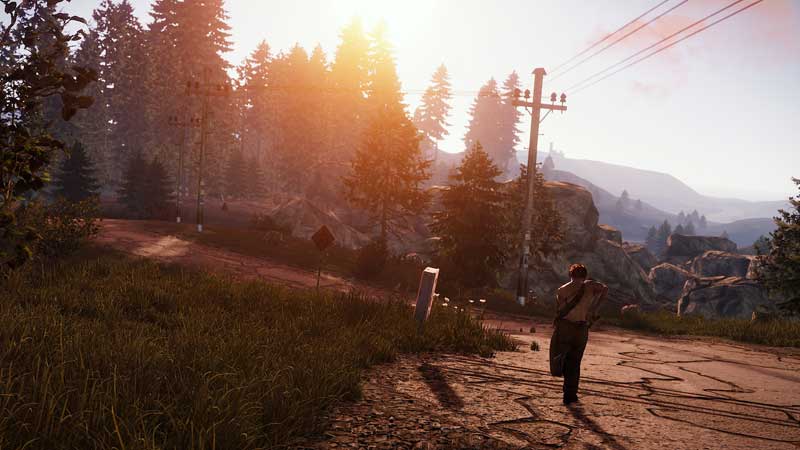Rust players are faced with many server related connectivity issues and pc performance-related issues since its 2013 early access release. It was full of unstable servers and a majority of the time unplayable framerates. Even though the game went through major gameplay changes and ported the game engine to Unity 5, many issues still haunt players. This is all mainly because of the PvP nature of the game and the need to be online as the game is multiplayer-only for now. So let’s look at how to fix Lag and Stuttering in Rust. Take these steps to decrease the lag and other major issues like frame dropping in Rust.
Rust Freezing, Lag And Stuttering Fix 2024

The first and most important part is to confirm if you meet the recommended or the minimum spec requirements as shown below. This will make sure that the game isn’t running slow.
Rust Minimum Requirements
- Cpu: Intel Core I7-3770 / AMD Fx-9590 Or Better
- Ram: 8 Gb
- OS: Windows 7 64bit
- Video Card: GTX 670 2gb / AMD R9 280 Better
- Dedicated Video Ram: 2048 Mb
Rust Recommended Requirements
- Cpu: Intel Core I7-4690k / AMD Ryzen 5 1600
- Ram: 16 Gb
- OS: Windows 10 64bit
- Video Card: GTX 980 / AMD R9 Fury
- Dedicated Video Ram: 4096 Mb
Once you meet these requirements and are still getting issues, try lowering your graphical settings to bring it to a playable framerate. Also, try changing your server as some servers are always laggy. This also depends on your ping.
Once you have achieved playable framerates and tried changing the server, do the below steps to solve the remaining lagging and other issues.
Restart your PC to fix Lag and Stuttering in Rust
If the game freezes the best idea is to end it from Task Manager and restart the entire PC. This will reboot the OS and fix the minor crashes. If you are still getting issues keep moving towards the points below.
Update your Graphics Driver
New GPU Driver updates include various bug fixes and patches for Rust. Updating your driver to the latest version will remove all the issues that your respective GPU chipset provider could solve.
Change the Power Option
Open your Control Panel, go to Power Options, and set your power plan to High performance, instead of Balanced mode.
Repair the Easy Anti-Cheat
Easy Anti Cheat by Epic Games, is the backbone of rust. So we have to make sure it is not corrupt in any way. To do this, search easyanticheat in your pc directory. Once you find EasyAntiCheat_Setup.exe open it as an Administrator. From the drop-down list, select Rust and click on “Repair Service”. This will force check and fix any errors in the Anti-Cheat system.
Make sure to Opt-out of Steam Beta
Make sure to run a stable version of Steam instead of beta as many users have reported in different forums that doing this has solved many of their issues with Rust. To do this, go to your Steam Settings, and in Account click on the Change button under Beta participation. From the dropdown list click “NONE – Opt-out of all beta programs” then Confirm.
End unnecessary Programs running in Background
Rust needs all the resources your pc can offer at any given time. So make sure to end all unnecessary tasks hogging your precious resources in the background before you start the game.
Run Steam in administrator mode
To make sure Rust has full access to all crucial files in your pc, start Steam as an administrator.
Verify Rust’s game file’s integrity
As with every other game in Steam, go to your steam library, right-click Rust and go to properties. From the Local Files tab, select “Verify Integrity Of Game Files”. This will initiate the scan and cross-check of all your game files.
Set Process Affinity
Once the scan is completed, start the game. Once Rust launches, hit the Windows logo key to minimize the game. Go to Task Manager>Details Tab> right-click on Rust> Set Affinity.
Tick and enable all the options in the next window, as this will allow full CPU cores to the game.
Set Launch Options in Steam to Fix Lag Stuttering in Rust
Go to Properties by right-clicking Rust in your Steam library. In the General tab, click on “SET LAUNCH OPTIONS“. Replace any code in the box with the code as given below.
high -maxMem=16384 -malloc=system -force-feature-level-11-0 -winxp -nolog -force-d3d11
You should change the max memory amount at the above code as per the list given below. We are using a 16GB rig, so we typed in 16384 after ‘-maxMem=‘
- 4 GB = 4096
- 6 GB = 6144
- 8 GB = 8192
- 12 GB = 12288
- 16 GB = 16384
- 24 GB = 24576
- 32 GB = 32768
- 64 GB = 65536
You should change yours according to your system RAM size. Once this is done, start Rust and check if this code is working for you. If it’s not, then you will have to revert to the previous launch option code if you had any. Or else completely remove them and try again.
Reinstall the Game to Fix Lag and Stuttering in Rust
If none of the above fixes are working for you, it’s time for you to do a full clean uninstall including any logs, and game system files. Then start a full new install and see if the process is done.
That’s all there to know about how to fix lag and stuttering in Rust. Going through these steps one by one should solve all your major issues in Rust.
Also if you are a newcomer or already enjoy playing the game, we’ve got some guides for you that will help you to survive in the wilderness. Check out all our Rust guides like:

